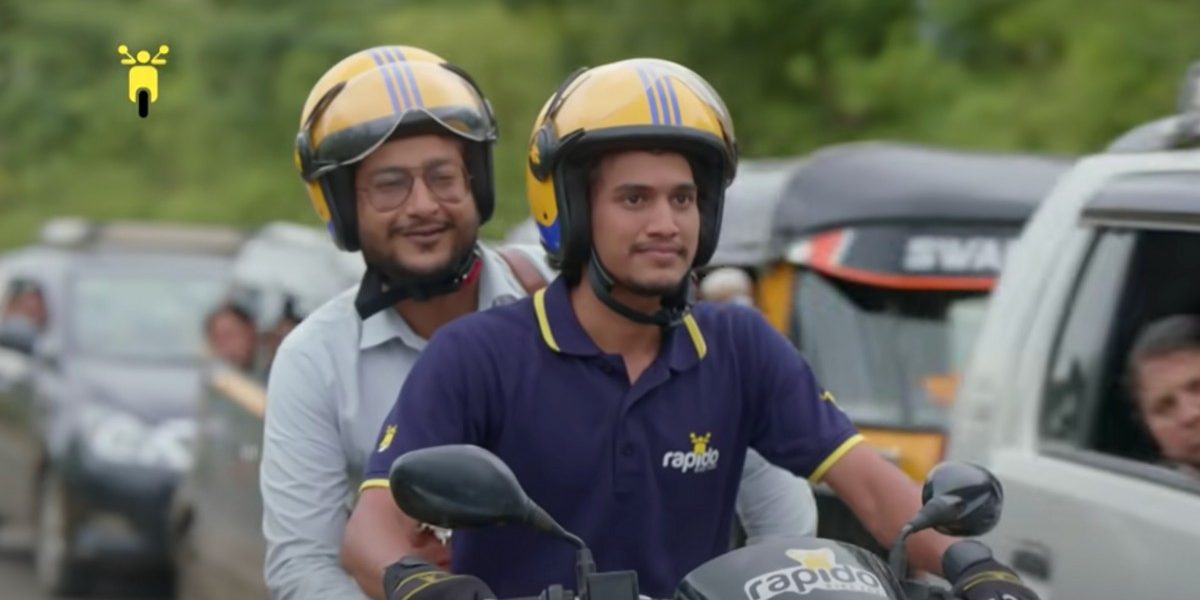It began for me with the advertisements for vehicle tires. There was a relatively recent one in which Aamir Khan’s character does ridiculous things on the road, like driving down the wrong side like it was the right side, setting off firecrackers and spilling recklessly into it with a group of dancers at a wedding, in every case forcing people in vehicles to depend entirely on the performance of their tires and brakes to avoid injuring/killing someone.
Ads like this caricatured what we had internalised by then – that traffic discipline in urban India was such a lost cause that we, the people pining for this change, were better off adapting to the shenanigans of these supposedly intractable people instead.
In just the first three months of 2022, however, this cynicism towards change seems to have ballooned past the thin line between the ‘us’ and the ‘them’ that the tire manufacturers pretended existed, with the manufacturers claiming to help the ‘us’. Instead, in many ads today, the companies are collectively one party, the ‘us’ from their points of view, and the rest of us the ‘them’.
This perspective seems to encourage consumers to give in to their inner cynics and cowards, as the case may be, and submit to what the companies have to offer. Four examples come swiftly to mind.
There is Magicpin, in which people brawling on the street – and in a subsequent edition a suit-clad man riding in on a battle tank – politely ask a befuddled onlooker to point his camera instead at nearby stores where he can shop at a discount.
The second is Swiggy’s Instamart, a prompt delivery service for grocery-store items, à la Zomato’s promise to deliver some foods in 10 minutes and a similar offering on Dunzo’s part. In the Instamart ad, a fellow watching TV on his couch is startled when his daughter starts to scream because they’re out of chocolate-flavoured cereal. The fellow quickly orders the thing on Instamart and a “delivery executive” shows up a minute later at their doorstep. The daughter promptly stops crying.
Such children are frankly annoying, but not more than their parents, who refuse to discipline their kids in public places and who often seem to believe their kids are entitled to their tantrums, and the irritation of everyone else around. And the fact that Swiggy believes it is healthy and desirable to encourage such behaviour, by catering to such life choices as quickly as possible, is deeply disheartening.
Then there is Rapido – Uber with motorbikes. Bikes already exist on Indian roads, sure, but they are often driven the way Aamir Khan’s character does in the tire ad above. And Ranveer Singh, Rapido’s brand ambassador in Hindi, makes a show of how bikes can squeeze in the gaps in traffic and reach their destinations faster. This isn’t driving behaviour we need to encourage: it is in fact part of what makes driving on city roads so harrowing and unsafe.
In the Telugu version of Rapido’s ad, Tollywood star Allu Arjun – to quote from The News Minute’s article – says “state buses take too long, and that using a Rapido bike is faster and safer. The actor tells a customer that travelling by a crowded public transport bus would mince a commuter who is like a regular dosa into the stuffings of a masala dosa, suggesting that using Rapido is more convenient”. This outright promotes civic disengagement from the task of improving public transport.
Finally, there is the crowning jewel: the ad for PharmEasy, in which three clones of Aamir Khan turn up one by one at the house of a desperate middle-aged man about to rush out to a pharmacy in pouring rain late at night. But he opens a window, and there’s a clone; he opens a door and there’s a clone; he opens a hatch in the middle of the floor in the living room and there’s a clone. All bear boxes of medicines and ask the man why he feels the need to step out at all.
The poor chap, now trembling, backs down and says he won’t step out again. As the lightning storm continues to rage outside and the man browses the PharmEasy app on his phone, the three box-bearing clones break into an elated dance. If this isn’t a home invasion, what is?
Consider all four ads together and what they seem to imply for what these companies imagine their potential consumers’ lives to be like: don’t step out, get everything on your app, expect deliveries in 10 minutes, throw ear-splitting tantrums if you don’t; if you do need to get out, stick to shopping at all costs – but at discounts – and get to these shops in taxis prepared to make the experience of other commuters miserable. And for your own good, don’t try to do better.
This article first appeared on the author’s blog and has been republished here with permission.
Featured image: Screengrab from an ad for ‘Rapido’

